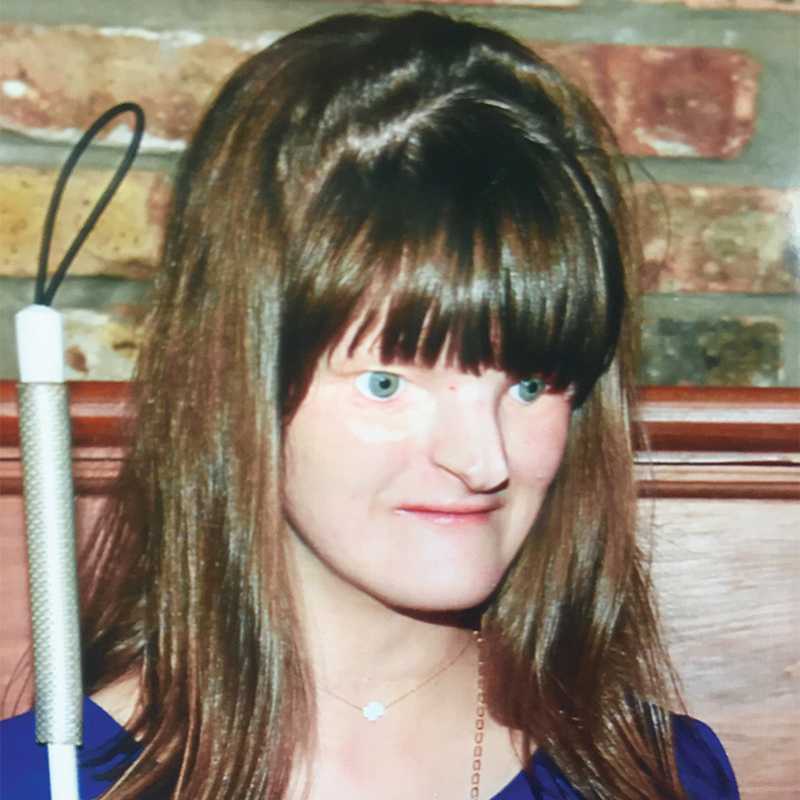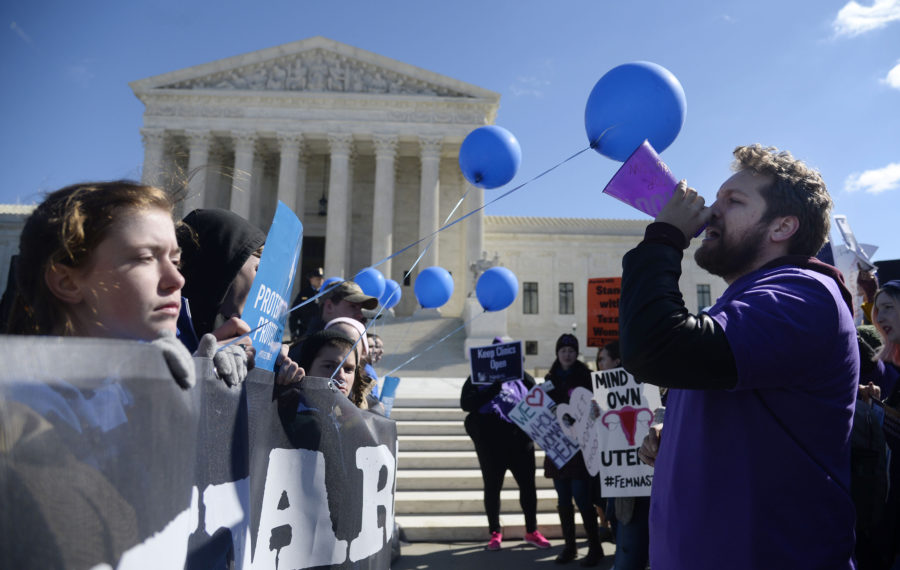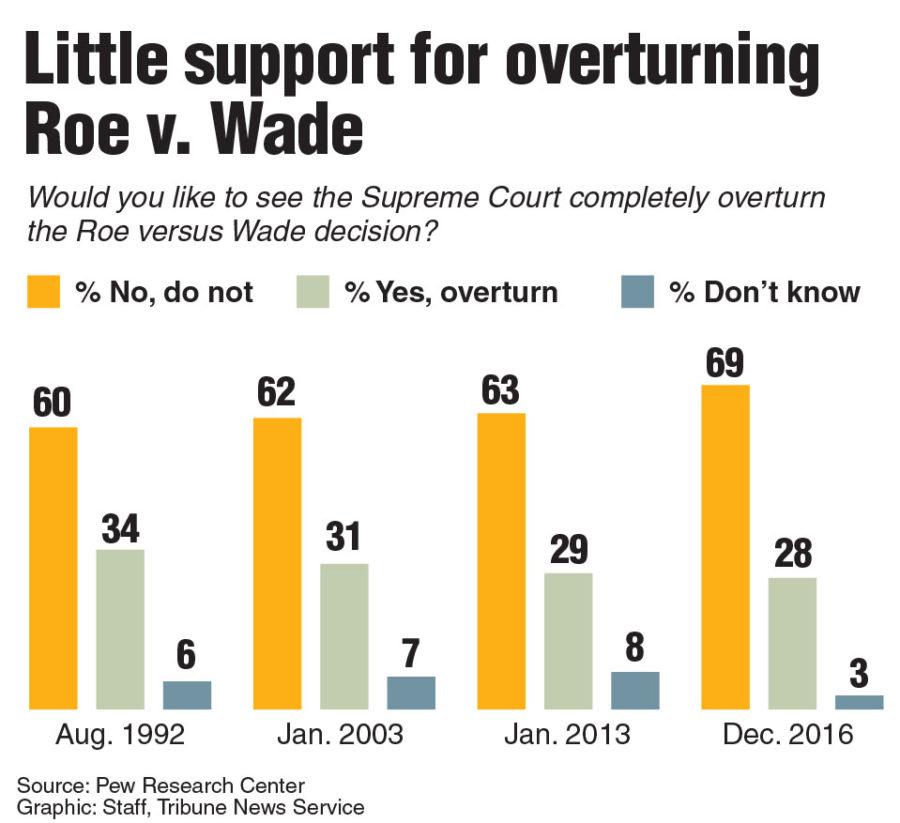Opinion: Students engage in a civil debate on abortion
March 22, 2017
Argument: The criteria for life: humans are alive at conception

A human being is alive from the moment of conception.
One of the criteria for life is an organism’s ability to grow and generate cells. Humans have this ability almost immediately after conception. Cell division begins within 24 to 36 hours of conception, when the child is still in the fallopian tube.
Once a human zygote has split into eight separate cells, cells begin to assume specific functions. Within three weeks, the neural tube, or the beginnings of the brain and spinal cord, forms.
This is also when a human’s heart begins to form and beat. By the eighth week of life, a human being already has all of its vital organs, except sex organs, which develop later.
Other criteria for life include the ability to metabolize nutrients and the ability to respond to external stimuli.
Unborn children receive nutrients from their mothers through the placenta and the umbilical cord. They metabolize these nutrients to continue growing and developing. A child responds to external stimuli long before he or she can survive outside the womb.
Also, every human has a unique DNA code, which is copied in every cell of his or her body. Children’s DNA can be identified long before they are born, making each unborn child a unique individual.
As unique individuals who exhibit all the characteristics of life, unborn children have the same inherent and unalienable right to life guaranteed to people at every other stage of life.
Biologically speaking, an unborn child’s life is just the same as that of a toddler or teenager. The right to life is guaranteed to every human being in some of the world’s most important political documents, including the U.S. Constitution, the Declaration of Independence and Article III of the Universal Declaration of Human Rights.
The pro-life movement believes in a woman’s right to control her body, but because children are alive from the moment of conception, they have the right to bodily autonomy as well.
A hierarchy of rights must be observed. When a baby’s right to life conflicts with a woman’s right to control her body, the right to life supersedes the right not to give birth. A woman is pregnant for nine months, but a child can live for 99 years. Women have no right to take away 99 years of potential.
Abortion is not exclusively a women’s issue. Framing it as such diminishes the role of fatherhood. Men might not be able to get pregnant, but they share emotional and spiritual bonds with their unborn babies.
Abortion betrays men and women as well as their children. Many women have suffered psychological trauma after abortions. Over 17,000 women have spoken out publicly to say that they regret their abortions.
Abortions are applied in a way reminiscent of the 20th century’s eugenics movement. Minority children are aborted at a higher rate than White children, and abortions overwhelmingly target people with disabilities.
A study from Wane University shows that 87 percent of unborn children with Down syndrome are aborted, as are 64 percent of children with spina bifida.
That devalues the lives of minorities and disabled people. The pro-life movement seeks to create a society that preserves and protects every human life.
Rebuttal: Supporting abortion rights actually supports life

Since you used the criteria for life to try and prove why a fetus has the right to life, I believe that I can use that same criteria to prove why a fetus does not meet those qualifications.
I used the requirements for life listed in an article published by the New Mexico Institute of Mining and Technology.
The first category for life is that living things are composed of cells. The article states that single-cell organisms are considered alive because they have everything they need to be self-sufficient.
If fetuses were self-sufficient, we could take them out of the womb to develop on their own. A fetus cannot survive unaided outside of the womb, however, until around 24 weeks. At this point, abortion should only be a possibility in a life-or-death situation for the mother.
Next, the development process that you mentioned is sound, but it is not an argument for human life, but rather all life in general.
If we use all of these requirements as a logical explanation for why abortion should be illegal, then that same reasoning would qualify all animals as having the right to life, as well.
While I believe animals have the right to fair treatment, I do not think you are proposing that the human population should convert to veganism.
The “hierarchy of rights” mentioned honestly disturbs me. Hypothetically, if a woman were to be at serious risk for death should she continue her pregnancy, the hierarchy of rights demands that she accept her fate for the sake of the fetus’ chance of life.
When you say “A woman is pregnant for 9 months but a child can live for 99 years,” I understand, but the potential that a child has is as equal to the potential a woman has.
However, that woman may very well outlive the child by any number of years. No one knows when they will die. It may be well before 99 years or it may be after. The woman who died because the “hierarchy of life” demands it may have given up her potential to a baby who dies from neonatal death.
I feel like disproving your arguments are straying me from the real issue, which is defending a woman’s right to terminate a pregnancy, but before I continue with that, I would like to bring up one more point that you mentioned.
Men may share connections with their babies, but they are not the ones carrying the baby.
Many times, women chose to abort because the man who helped in the conception of the fetus is no longer in the picture or has just as little to offer the child as the
woman does.
Men are not required to help pay for the bills that a woman deals with during pregnancy or the outrageous hospital bill that comes after birth. If men do not have the legal obligations that a woman does in the midst of her pregnancy—ignoring the pain, sickness and physical changes a woman’s body goes through—then men should have no legal say in whether a woman can have an abortion.
I am pro-choice because having the option to time pregnancies allows women to reach their full potential as humans, not just as mothers. Children that are born to a mother who could handle and joyfully accept her pregnancy live healthier lives. They get the kind of love and support every child needs and deserves.
Abortion can also help people escape poverty by not adding more mouths to feed or doctors’ bills to deal with.
I’m pro-choice because, despite any fruitless arguments over conception, a women has the right to protect her health and control her future.
There are myriad reasons to support a women’s right to choose, but only a few philosophical and religious-based reasons that do not qualify as evidence to suggest it is wrong, morally or legally.


Argument: Individuals’ beliefs should not legislate abortion

I am pro-choice, and that’s a decently recent development. I have a relatively close relationship to the subject, though I have luckily never needed an abortion myself.
My mother was conceived by a woman who could not provide a safe space for her. Knowing this before her conception, and with no access to a safe procedure, her birth mother attempted a home abortion, but failed.
I’m lucky to be here today, but the reality is that my luck is far from the typical outcome. According to the World Health Organization, over 47,000 women die from complications of unsafe abortion each year, and deaths due to unsafe abortion remain close to 13 percent of all maternal deaths.
No one wants an abortion. No one should be forced to have an abortion. However, they can be a necessity for a woman’s health and are a right that needs to be protected for safety, for freedom and
for choice.
Scientifically, there is no evidence to prove at what point human life begins in the development process. When considering that over half of conceptions are aborted by nature, meaning that sperm and egg will engage and fail without a woman ever knowing, trying to insist that life begins at conception is illogical. How are we possibly supposed to apply this legally?
We live in a democracy that prides itself on the separation of church and state. Religious and philosophical views are the only justification not to allow abortions to be legal, and though faith is a beautiful thing, it is not infallible in any way.
I do agree there is much in the law that is not always just, but a separation of church and state is vital to a free America. Religious beliefs cannot be applied to the law, especially with such an important matter
at hand.
The media shows us stories of people like Tim Tebow, successful people who were close to being terminated as fetuses. Those stories are incredible, and should be cherished, and because my mother’s amazing story, I understand the
sentiment personally.
But I’ve also seen the harsh reality for people, both the women and children, who were born into situations where abortions were sought but unavailable. Both paid the consequences.
My mother’s biological sister, for example, did not make it out of that situation and has spent her entire life struggling in and out of inpatient care.
Every individual is different, but woman who seek abortions are in no way selfish or bad people. They are people in incredibly difficult situations, who are considering the life they can or cannot provide for their future children, as well as the specific health risks they may face.
If you haven’t been personally affected by this situation, you simply cannot understand the gravity and pain this decision holds. It outweighs any beliefs, religious or personal, and trying to ban this necessary practice only endangers the lives of women and countless children.
I’m pro-choice because there is no justifiable reason for me not to be. Being pro-choice, to me, means that I am truly pro-life. I’m for the lives that are already members of this society. Their health and happiness matters.
We already need improvement in sexual education and resources, and abortion should obviously be a last resort. But sometimes it the resort we need, and attempting to ban it only feeds this dangerous cycle.
Rebuttal: Alternatives to abortion protect the right to life

Abortion is the unnatural termination of pregnancy. A miscarriage is defined by the American Pregnancy Association as a pregnancy that ends naturally before 20 weeks.
According to the American College of Obstetricians and Gynecologists, 10 to 25 percent of pregnancies end in miscarriage, not two-thirds. But just because some pregnancies end naturally doesn’t mean that unborn children aren’t alive and don’t deserve the same rights as
everyone else.
One study published in the February 2013 issue of Obstetrics & Gynecology claimed that legal abortion is 10 times safer than childbirth. However, maternal deaths resulting from legal abortions
are underreported.
The Center for Disease Control keeps track of abortion statistics, but no federal law requires states to report abortion-related deaths. Three of the four most populous states, including California, don’t report abortion-related deaths to the CDC, so these statistics are skewed and unreliable.
A study of 173,000 low-income California women published in the August 2013 issue of the Southern Medical Journal found that women who had abortions were twice as likely to die within a year than women who gave birth.
Abortion doesn’t improve the mental health of women. Although many women feel a sense of relief after the procedure, this is usually temporary.
One study showed that between 40 and 60 percent of women reported depression, suicidal thoughts, loss of self-esteem and survivor’s guilt within a few weeks after their abortions. Over 17,000 men and women have spoken out publicly to say that they regret their abortions.
It is true that unsafe abortions cause 13 percent of maternal deaths worldwide. However, the solution is not to make abortions more available.
We should focus our efforts on eliminating the social and economic pressures that force women to have abortions.
If a girl gets pregnant at senior prom, she’s told that she cannot attend college and be a mother. Our schools and workplaces should provide quality daycare for these women instead of forcing them to choose between being mothers or being career women.
One of the major goals of the pro-life movement is to eliminate the stigma surrounding unplanned pregnancy. This means providing better sexual education that teaches not only abstinence but effective methods for protection.
Women deserve access to quality prenatal and postnatal health care. What many people don’t realize is that there are 13,000 clinics that offer pregnancy services but don’t support abortion.
If a woman doesn’t have the resources or the desire to care for her child, she can put the baby up for adoption.
There are 3,000 adoption agencies in the U.S. There is a shortage of American infants put up for adoption; each year, there are 36 couples on a waiting list for every baby who is adopted.
Also, all 50 states, Washington D.C. and Puerto Rico have Safe Haven laws that allow parents to leave infants up to one month old at hospitals, police and fire stations. Parents who surrender their children under Safe Haven laws are allowed to remain anonymous and shielded from prosecution.
Although the tenets of Christianity support the pro-life worldview, there are scientific and social justice grounds for these beliefs. The pro-life movement isn’t trying to create a theocratic state.
Being pro-life doesn’t mean caring only about the unborn; it means treating all lives, those who are here now and those yet to come, with equal respect.







